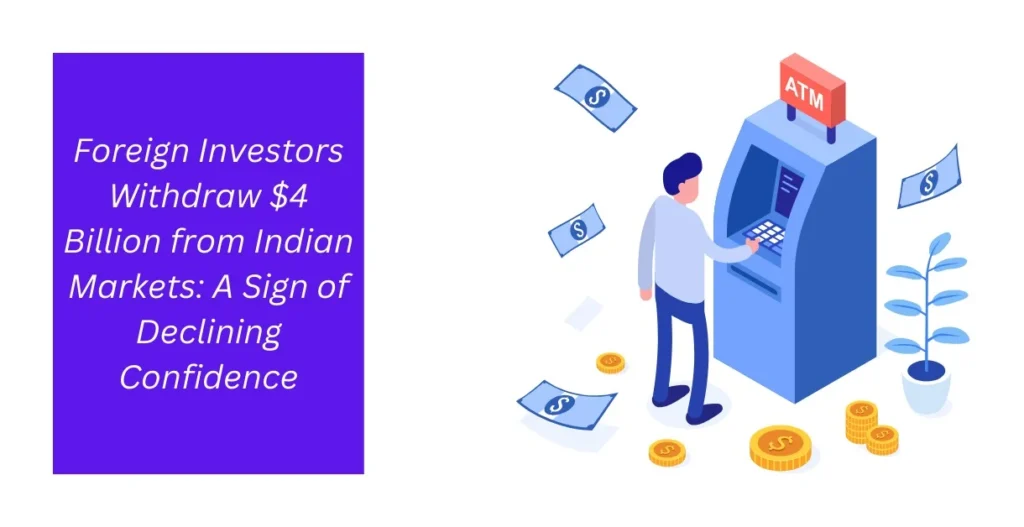
In a surprising turn of events, foreign investors have shown a significant decline in confidence in the Indian stock market, pulling out over $4 billion since April 2023. This trend marks the most substantial disillusionment since 2012, fueled by concerns over the upcoming 2024 Lok Sabha elections and the anticipated performance of Prime Minister Narendra Modi’s National Democratic Alliance (NDA).
Election Uncertainties Affect Investor Sentiment
As the 2024 general elections approach, analysts predict a challenging outcome for the NDA, which is expected to secure fewer seats than previously forecasted. This political uncertainty has led to increased market volatility and a surge in net short positions, reaching levels not seen since after 2012. The selling trend among investors is a clear indicator of this growing apprehension, with April witnessing a withdrawal exceeding $4 billion from Indian stocks.
Declining Voter Turnout and Policy Concerns
The low voter turnout noted in the ongoing elections raises further concerns about potential slowdowns in key policy reforms, particularly in infrastructure and manufacturing sectors. Such a scenario could undermine the stability and growth prospects of the Indian economy, making it less attractive to foreign investors.
Market Analysts’ Mixed Views
While the overall sentiment is bearish, some market strategists like Frank Benzimra and Rajat Agrawal from Societe Generale are optimistic. They suggest that an unforeseen market disruption, similar to what occurred in 2004 with unexpected cuts in interest rates by the Federal Reserve, could potentially drive the market upwards. This “unpriced disruption” could offer a silver lining amid the prevailing market gloom.
Election Phases and Future Projections
With the fourth phase of elections completed and the final stage scheduled for June 1, Prime Minister Modi is hopeful for a third term. However, the current voter turnout trends and the heatwave impacting voter mobilization pose significant risks to the ruling BJP’s expected majority in the parliament.
Implied Volatility and Market Performance
The market’s implied volatility, which forecasts the extent of market fluctuations, has escalated from under 15% to over 20% since the start of the voting period. This increased volatility indicates a cautious outlook among investors for the market’s near future.
Comparison with Asian Markets
While the Indian stock market has been underperforming this quarter, other Asian markets have shown better results. High valuations of Indian stocks and recent improvements in China’s market conditions have diverted investor attention away from India, contributing to the bearish sentiment.
Conclusion
The confluence of political uncertainties, policy concerns, and comparative underperformance to other Asian markets has led to a significant withdrawal of foreign investments from India. As the elections progress and the final results loom, the Indian market remains a focal point for investors worldwide, holding a cautious gaze on its potential volatility and future trajectory.
